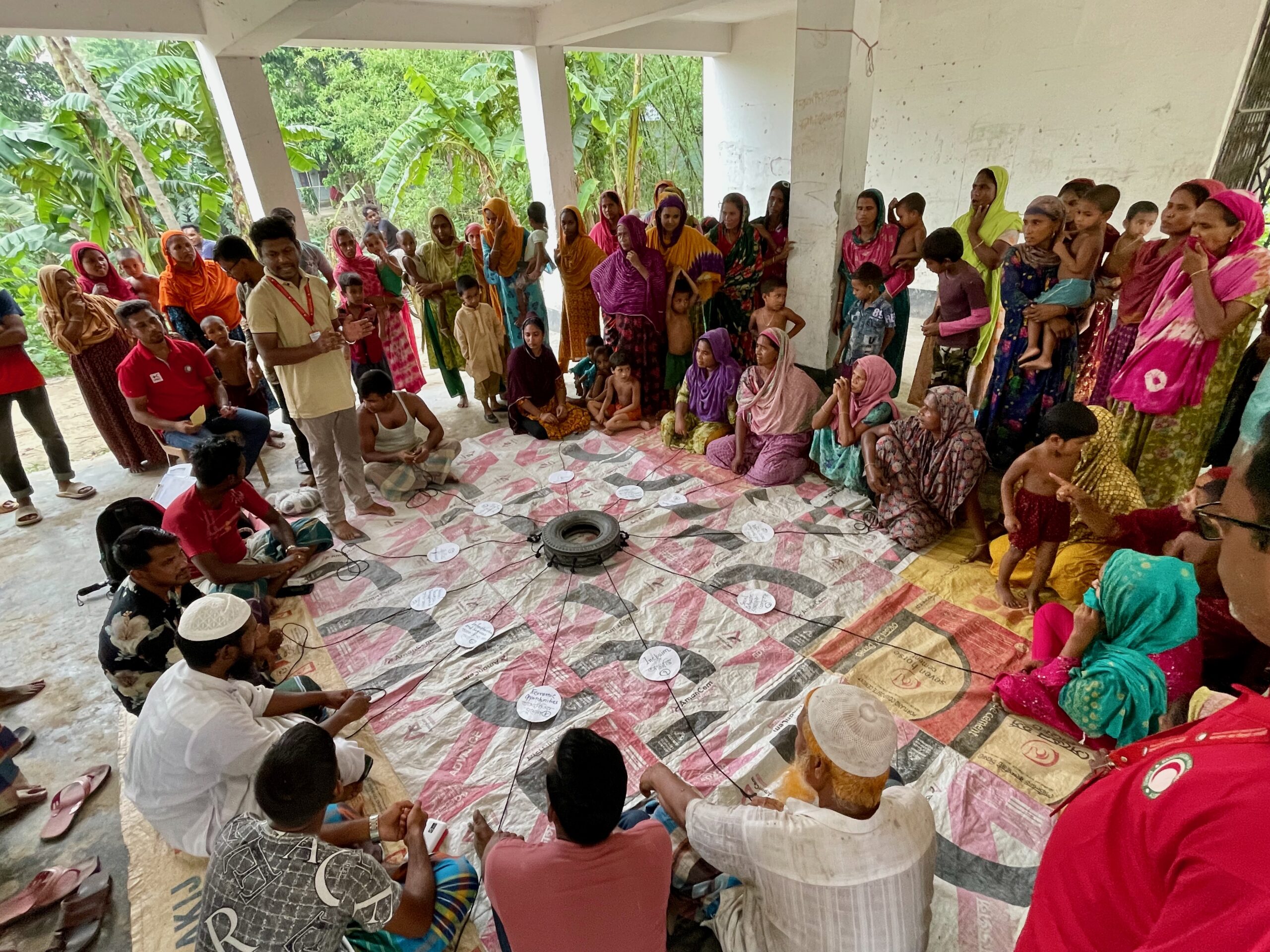Jamuna baseline. Baseline study for the project: Joint actions for mitigating climate uncertainties and natural adversities (JAMUNA), 2024-2028

This baseline study for new project by Bangladesh Red Crescent Society (BDRCS) and Swiss Red Cross (SRC) in four districts of Bangladesh’s Jamuna basin illustrates extreme levels of vulnerability and sensitivity to climate stressors. Using the IFRC versions of the resilience radar (survey-based) and resilience star (discussion-based), the study shows that resilience is low: the average resilience score is just 0.32 (range: minimum 0.00 to maximum 1.00), and thus much lower than equivalent baseline scores for previous projects by BDRCS and SRC.
Social vulnerability is high, and with limited preparedness, coping capacity, and connectedness, natural hazard events can have severe impacts. The communities already experience strong effects of the climate crisis (increased frequency of human and animal diseases and crop failures were the most cited). However, knowledge of the climate crisis itself and of ways to adapt to it is very limited.
The report’s resilience dashboard of 44 indicators gives a detailed description of current patterns. Based on the findings, the report provides a set of 22 recommendations for the implementation of the Jamuna project.
